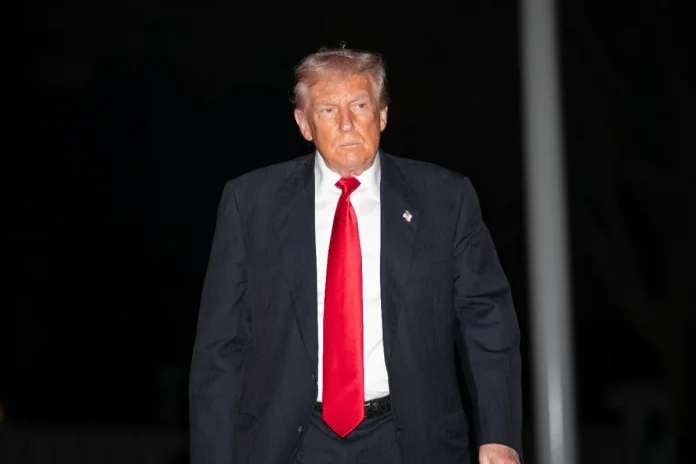Governor Gavin Newsom criticises Trump’s fossil fuel agenda at COP30, pledging US will rejoin Paris Agreement and calling climate action a moral imperative.
BELÉM, BRAZIL: California Governor Gavin Newsom seized the spotlight at the UN climate summit with a forceful condemnation of Donald Trump’s environmental policies.
The Democratic governor, considered a potential 2028 presidential candidate, blasted Trump for twice withdrawing from the Paris climate accord and “doubling down on stupid” through his support of Big Oil.
Newsom pledged that a future Democratic administration would rejoin the Paris Agreement “without hesitation.”
“It’s a moral commitment, it’s an economic imperative,” Newsom told AFP in Belém, the Brazilian Amazon city hosting COP30.
He called Trump’s withdrawal from the climate accords “an abomination.”
Trump returned to office in January and promptly withdrew the United States from the landmark Paris deal for the second time.
The former president has repeatedly dismissed human-caused planetary warming as a “con job.”
Newsom appeared alongside Para Governor Helder Barbalho, highlighting California’s environmental achievements between sampling tropical fruit and acai juice.
He noted that the Golden State, the world’s fourth-largest economy, now draws two-thirds of its power from renewable sources.
The California governor maintained a packed schedule of meetings and press events with German state officials, Brazil’s Indigenous Peoples minister, and the COP30 president.
Large media scrums followed his movements throughout the day, attention typically reserved for national leaders.
Regional leaders like Newsom have no official role in COP30 negotiations, which began Monday with urgent calls for continued climate action.
New Mexico Governor Michelle Lujan Grisham acknowledged these limitations while attending summit events.
“Certainly our meetings with leaders at the UN and others was to demonstrate that we’re interested in any possibility that does more about that direct negotiation and representation,” she said.
Her attendance aimed to show that “when the federal government leans in, we do more, and when they lean out, we do more.”
Christiana Figueres, an architect of the Paris agreement, said the summit benefited from Trump’s administration staying away.
“I actually think it is a good thing,” she said, suggesting that while US officials might work behind the scenes with petrostates, “they can not take the floor” to bully other nations directly.
US states and cities retain significant climate authority despite federal opposition.
A University of Maryland analysis found that if these governments intensify efforts alongside a climate-friendly 2028 presidential election, US emissions could fall by over 50% by 2035.
This would approach the 61-66% reduction targeted by the previous Biden administration.
“The president can’t throw a switch and turn everything off—that’s not how our system works,” said report lead Nate Hultman.
Market-driven green transition remains strong even in climate-hostile states like Texas, which led US renewable energy generation last year.
Hultman previously worked for Democratic presidents.
Questions persist about state-level action’s effectiveness without federal backing.
Trump’s Republicans recently passed legislation ending clean energy tax credits early, dealing a potential blow to renewable sector growth.
The administration has also pushed for increased domestic drilling while undermining international climate cooperation.
Trump’s team recently sabotaged efforts to impose a carbon tax on shipping by threatening retaliation against supporting nations.
Newsom urged countries to resist further intimidation tactics, emphasising that “Trump is temporary” and “you stand up to a bully.” – AFP








